#bible stories dismantled
Text
I was thinking the other day about how often biblical stories imply that any sort of species can be started with just one and one female of the species, and sells this as the correct (maybe only correct) way to start things. Like Adam and Eve, they're supposed to be the starters of humanity, one (presumably young) male and one again, presumably young woman.
It repeats again with Noah's ark, where two animals of each species are collected, one male and one female, so they could all 'start their species anew'. Noah's family also is presumed to be the regular, one male + one woman, enough to re-start the humanity.
I understand that these stories were written to establish and force the idea of nuclear family being necessary, good and the start of everything, and if you don't think further than 'oh yeah one male and one woman are capable of making a baby' and you stop thinking there, you might be sold with these stories. But if you think about it for a second further, the implications of this are absolutely atrocious.
One young male and a young woman, are never accompanied by their parents or their grandparents in the stories. They're purposely isolated from their families, or are presumed to not even have family, which means none of them has any support, anyone to go to for advice or help, nobody to rely on to do the massive amount of labour of having and raising even one child. This is already where it falls apart, two young people do not have the knowledge, experience or wisdom to raise a small child, alone. They need their mothers, they need their grandmothers, they need elders and community in order to be able to function - first of all tell me who is delivering that baby they're having? Where is her midwife? It's never mentioned how she gets through childbirth in those stories, apparently she just 'figures it out', while in reality birth is dangerous, and women need both emotional and physical support during labour. There's nobody in this story who knows how to deliver the child safely, or how to save one or both of them should the things go wrong. They both have a chance of dying and then the species is dead. This is all ignored and pretended not to be an issue.
So next in the story we're led to believe that these two young people have made a (mistake) baby and are raising it alone and this is fine. Even funnier is that they often first have a male baby, as an effort to repopulate their species, I mean yeah thats gonna do you a lot of good for sure. Two young people of the opposite sex, without any elders, community, family or support, have one significant power imbalance - the male will usually be physically more powerful, while the woman will be more intelligent, resourceful, adaptive, thoughtful, resilient, and infinitely more vulnerable during the times of labour. It has been shown again and again, that in these circumstances, males do not find it appropriate to protect and treasure the women, but they use their physical advantage to overpower and control her, and her reproductive abilities. But in the stories this is 'fine' because she should 'listen' to this dumber, bigger, less intelligent, more aggressive, more demanding, more exploitative, more dangerous, less useful creature who is completely parasitic and depending on her kindness, intelligence, ability to make food, reproductive abilities and sense of forgiveness of his crimes towards her, to survive. Women are apparently just supposed to be hosts for parasitic males, while isolated, not given a way to overpower him except poison, which is then again depicted as 'bad' because she should just resign to live in servitude to the creature if she wants to prove that she is 'good'. This is bullshit.
Let's look at the next stage, where even more disasters await us. So they raised their child, or children, who have only had these two people to look up to, so they've likely picked up the patterns of 'male is to be served or violence happens, women need to keep their head down and obey or the violence happens', and now the children are supposed to repopulate the species. With? whom? This concept relies entirely on incest? With children who have been raised on learning the massive power imbalance? We're supposed to have sisters accept sexual slavery from their brothers at this point, if we want to have a species of humans? The bible is promoting this?
The bible at this point realizes they've fucked up and write down 'well the sons just went to the nearest village to find girlfriends' OH YOU NEED A VILLAGE NOW DON'T YOU? Now you remembered that actually no, you will now rebuild a species without just one male and one woman and in fact, villages are necessary, and your story leads straight into incest and sexual slavery of women. Presumably the women in the village have whole families and not just two people put in this unnatural position of parasitism and power imbalance. But we don't know, we're supposed to remember 'one male + one woman is correct and nothing else is okay', when the concept is fucked up from the starts and they eventually cave and introduce a village, but do it casually like it doesn't really matter and the story totally wouldn't end up in forced incestuous pregnancies and making a mess of human gene pool.
It was so important for the bible to establish, and re-establish this concept because that is the only way for males to be able to isolate, use and control young women. The concept where women don't have their own mothers, grandmothers, sisters, aunts, families, friends, and villages to protect them from abuse, that is the only scenario where one male can sit on his butt, call himself the 'provider' and then raise his voice and his hand whenever she doesn't do exactly as he says. It's disgusting, and there's nowhere else this can go except abuse. Males will never be unwilling to use their physical advantage to hurt and control women, and we've watched it for centuries, they were more willing to kill women than to accept that we have the right to vote,, the right to divorce them, the right to abort at will (they're still more willing to kill us than to accept this right). No woman is safe in an union with one male, without her family, friends, and a network of support. To live her entire life normally, she needs to rely on the knowledge, experience and wisdom of her elders, so she wouldn't have to do everything alone, and learn everything alone. Male, in return, usually learns all the tactics of manipulating and isolating a woman and will use those, so she needs to be ready and have strategies to defend herself, to be able to escape if it comes to that.
And sometimes, even when the woman has all the support in the world, the male still ends up killing her, because he gets a chance to do it, and it's always at the distraught and horror of everyone who loved her.
Thinking back, the concept of nuclear family had to be invented because males didn't feel like they were able to control the women enough. They likely needed to establish this because they noticed that women were able to go on uncontrolled, they were too 'free', too supported, too resourceful to just trap and control. They needed to convince women that the right thing to do was be alone with one male person who just happens to be stronger and that in fact, not doing so is dangerous and wrong. The concept of nuclear family put the control right in their hands where they wanted it, and it's still ongoing, and we're sick of it. It's a trap.
If you don't believe these stories have influenced our views, think about how males sometimes dream up concepts where they're the 'only male left on the planet', in company of the woman who they're interested in. They relish in these fantasies because they believe in that scenario, they're entitled to rape her. She isn't entitled to resist because then she's responsible for the downfall of humanity, for not repopulating the species, and they feel that this responsibility has to fall so heavy on the woman's shoulders that she will not possibly try to resist him. Women still do, women say right away that if they were the last one, they'd kill themselves instantly. Because we know and understand there's no repopulating the planet with just male and one female. There's just female sexual slavery and incest.
Possibly even the story of Adam and Eve is just a fantasy concept of one male who looked at a woman who was able to say no to him, and thought 'well, what if we were the only humans existing. How would she be able to refuse me then'. And he realized she couldn't. So he wrote it down and sold it as the ideal utopia created by god himself. And we've all been hearing his fetish fantasy like it's gospel. And then the rest of the story is focused on how wrong Eve is for resisting the rules of the male, and the even more powerful male god, how she'll be punished for eating a piece of fruit. We should have never fallen for it.
#anti religion#anti christianity#adam and eve#religion critical#radical feminism#radfem#feminism#noah's ark#bible stories dismantled#bible supported incest but changed its mind at the last second#anti marriage
80 notes
·
View notes
Text
How plausible sentence generators are changing the bullshit wars
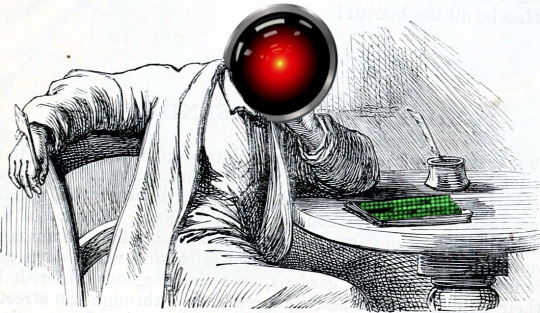
This Friday (September 8) at 10hPT/17hUK, I'm livestreaming "How To Dismantle the Internet" with Intelligence Squared.
On September 12 at 7pm, I'll be at Toronto's Another Story Bookshop with my new book The Internet Con: How to Seize the Means of Computation.

In my latest Locus Magazine column, "Plausible Sentence Generators," I describe how I unwittingly came to use – and even be impressed by – an AI chatbot – and what this means for a specialized, highly salient form of writing, namely, "bullshit":
https://locusmag.com/2023/09/commentary-by-cory-doctorow-plausible-sentence-generators/
Here's what happened: I got stranded at JFK due to heavy weather and an air-traffic control tower fire that locked down every westbound flight on the east coast. The American Airlines agent told me to try going standby the next morning, and advised that if I booked a hotel and saved my taxi receipts, I would get reimbursed when I got home to LA.
But when I got home, the airline's reps told me they would absolutely not reimburse me, that this was their policy, and they didn't care that their representative had promised they'd make me whole. This was so frustrating that I decided to take the airline to small claims court: I'm no lawyer, but I know that a contract takes place when an offer is made and accepted, and so I had a contract, and AA was violating it, and stiffing me for over $400.
The problem was that I didn't know anything about filing a small claim. I've been ripped off by lots of large American businesses, but none had pissed me off enough to sue – until American broke its contract with me.
So I googled it. I found a website that gave step-by-step instructions, starting with sending a "final demand" letter to the airline's business office. They offered to help me write the letter, and so I clicked and I typed and I wrote a pretty stern legal letter.
Now, I'm not a lawyer, but I have worked for a campaigning law-firm for over 20 years, and I've spent the same amount of time writing about the sins of the rich and powerful. I've seen a lot of threats, both those received by our clients and sent to me.
I've been threatened by everyone from Gwyneth Paltrow to Ralph Lauren to the Sacklers. I've been threatened by lawyers representing the billionaire who owned NSOG roup, the notoroious cyber arms-dealer. I even got a series of vicious, baseless threats from lawyers representing LAX's private terminal.
So I know a thing or two about writing a legal threat! I gave it a good effort and then submitted the form, and got a message asking me to wait for a minute or two. A couple minutes later, the form returned a new version of my letter, expanded and augmented. Now, my letter was a little scary – but this version was bowel-looseningly terrifying.
I had unwittingly used a chatbot. The website had fed my letter to a Large Language Model, likely ChatGPT, with a prompt like, "Make this into an aggressive, bullying legal threat." The chatbot obliged.
I don't think much of LLMs. After you get past the initial party trick of getting something like, "instructions for removing a grilled-cheese sandwich from a VCR in the style of the King James Bible," the novelty wears thin:
https://www.emergentmind.com/posts/write-a-biblical-verse-in-the-style-of-the-king-james
Yes, science fiction magazines are inundated with LLM-written short stories, but the problem there isn't merely the overwhelming quantity of machine-generated stories – it's also that they suck. They're bad stories:
https://www.npr.org/2023/02/24/1159286436/ai-chatbot-chatgpt-magazine-clarkesworld-artificial-intelligence
LLMs generate naturalistic prose. This is an impressive technical feat, and the details are genuinely fascinating. This series by Ben Levinstein is a must-read peek under the hood:
https://benlevinstein.substack.com/p/how-to-think-about-large-language
But "naturalistic prose" isn't necessarily good prose. A lot of naturalistic language is awful. In particular, legal documents are fucking terrible. Lawyers affect a stilted, stylized language that is both officious and obfuscated.
The LLM I accidentally used to rewrite my legal threat transmuted my own prose into something that reads like it was written by a $600/hour paralegal working for a $1500/hour partner at a white-show law-firm. As such, it sends a signal: "The person who commissioned this letter is so angry at you that they are willing to spend $600 to get you to cough up the $400 you owe them. Moreover, they are so well-resourced that they can afford to pursue this claim beyond any rational economic basis."
Let's be clear here: these kinds of lawyer letters aren't good writing; they're a highly specific form of bad writing. The point of this letter isn't to parse the text, it's to send a signal. If the letter was well-written, it wouldn't send the right signal. For the letter to work, it has to read like it was written by someone whose prose-sense was irreparably damaged by a legal education.
Here's the thing: the fact that an LLM can manufacture this once-expensive signal for free means that the signal's meaning will shortly change, forever. Once companies realize that this kind of letter can be generated on demand, it will cease to mean, "You are dealing with a furious, vindictive rich person." It will come to mean, "You are dealing with someone who knows how to type 'generate legal threat' into a search box."
Legal threat letters are in a class of language formally called "bullshit":
https://press.princeton.edu/books/hardcover/9780691122946/on-bullshit
LLMs may not be good at generating science fiction short stories, but they're excellent at generating bullshit. For example, a university prof friend of mine admits that they and all their colleagues are now writing grad student recommendation letters by feeding a few bullet points to an LLM, which inflates them with bullshit, adding puffery to swell those bullet points into lengthy paragraphs.
Naturally, the next stage is that profs on the receiving end of these recommendation letters will ask another LLM to summarize them by reducing them to a few bullet points. This is next-level bullshit: a few easily-grasped points are turned into a florid sheet of nonsense, which is then reconverted into a few bullet-points again, though these may only be tangentially related to the original.
What comes next? The reference letter becomes a useless signal. It goes from being a thing that a prof has to really believe in you to produce, whose mere existence is thus significant, to a thing that can be produced with the click of a button, and then it signifies nothing.
We've been through this before. It used to be that sending a letter to your legislative representative meant a lot. Then, automated internet forms produced by activists like me made it far easier to send those letters and lawmakers stopped taking them so seriously. So we created automatic dialers to let you phone your lawmakers, this being another once-powerful signal. Lowering the cost of making the phone call inevitably made the phone call mean less.
Today, we are in a war over signals. The actors and writers who've trudged through the heat-dome up and down the sidewalks in front of the studios in my neighborhood are sending a very powerful signal. The fact that they're fighting to prevent their industry from being enshittified by plausible sentence generators that can produce bullshit on demand makes their fight especially important.
Chatbots are the nuclear weapons of the bullshit wars. Want to generate 2,000 words of nonsense about "the first time I ate an egg," to run overtop of an omelet recipe you're hoping to make the number one Google result? ChatGPT has you covered. Want to generate fake complaints or fake positive reviews? The Stochastic Parrot will produce 'em all day long.
As I wrote for Locus: "None of this prose is good, none of it is really socially useful, but there’s demand for it. Ironically, the more bullshit there is, the more bullshit filters there are, and this requires still more bullshit to overcome it."
Meanwhile, AA still hasn't answered my letter, and to be honest, I'm so sick of bullshit I can't be bothered to sue them anymore. I suppose that's what they were counting on.

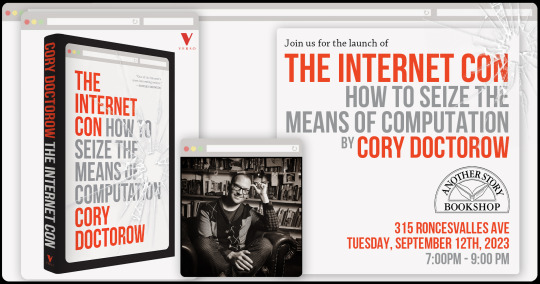

If you'd like an essay-formatted version of this post to read or share, here's a link to it on pluralistic.net, my surveillance-free, ad-free, tracker-free blog:
https://pluralistic.net/2023/09/07/govern-yourself-accordingly/#robolawyers

Image:
Cryteria (modified)
https://commons.wikimedia.org/wiki/File:HAL9000.svg
CC BY 3.0
https://creativecommons.org/licenses/by/3.0/deed.en
#pluralistic#chatbots#plausible sentence generators#robot lawyers#robolawyers#ai#ml#machine learning#artificial intelligence#stochastic parrots#bullshit#bullshit generators#the bullshit wars#llms#large language models#writing#Ben Levinstein
2K notes
·
View notes
Text
It’s tempting to think of Jillian as an atheist given her connexion to science, her confrontation with the church in s1 and simply as a counterpoint to all the religious characters around her. I’ve used the word for her myself in fic before, but I did it fully knowing that Jillian is perhaps the character who most wants to believe.
There’s an implication that she speaks from experience when she tells Kristian one doesn’t ever really leave the church…
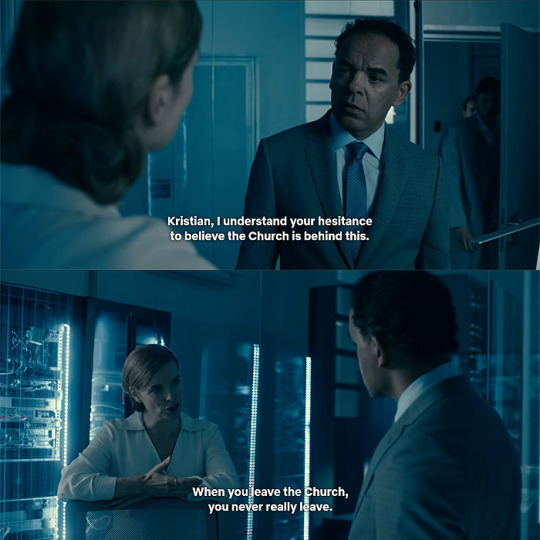
… And her firm principle of proving faith and science can coexist shows she has no intention of dismantling faith in itself or the value people find in spirituality.

When Luther supposedly nailed his objections to that fateful church door, he didn't intend to shake the core of what faith actually is—quite the contrary, one could argue.
Neither is Jillian trying to destabilise faith in itself... The difference is that she just decided to build her own door instead.
The church might stand in her way, yes, but one could could make a case about how it is more due to their keeping of divinium than to the criticism she directs at Vincent on the subject of Hell and the subjugation of women. She might well believe it—or any part of her performance during most of season one, really—but her conflict with the institution lies less in the way of ideology than in matters of practical consequences.
Were it not so, wouldn’t she have been a little more resistant to her son’s visions of an angel? Why believe in a child’s prophetic drawings otherwise? Even if she by any chance didn’t consider the giver of those visions an angel, the very fact of taking a vision seriously would suggest some degree of fidelity to the very idea of there being something more, something else than the life we know in this plane of existence.
If she doesn’t admit the existence of a god outright, she at least lends credence to the idea that there is something. We might not be able to take her fully at her word in the scenes where she’s playing her part as a seeker of knowledge maligned by the Vatican, but there is some amount of truth to what she says. She might not have truly found Heaven, she might not be able to prove her portal actually leads there...

… But she most certainly wants to be right. For Michael’s sake, there must be something else, even if not precisely what has been foreseen by scripture.
And, even so, she finds worth in that very scripture she doubts.

Perhaps she’s being honest when she tells Vincent she likes the stories—there’s a lot of knowledge to be found in even the simplest of them to she who knows how to seek it.
Perhaps there’s an underlying attachment of hers to the Bible, a past she cannot really abandon. It’s not all that common for people with absolutely no ties to Catholicism to have something like the image of a saint as decoration hanging in the background.

Sure, there are other religious elements scattered in her workplace including a Buddha, but it’s a man who used to be an archivist at the Vatican she hires, not a defected monk or rabbi.
Yes, she will work with anyone who is equally willing to work with her. It’s not from the goodness of her heart as there is a component of selfishness in such cooperation—one to which she admits herself—but her attitude is also a testament to the openness she has concerning the results she might obtain. Maybe the OCS is right, maybe there’s a God and saints and Heaven and Hell…
It doesn’t really matter as long as there is something, something to work towards, something to seek.
Or it didn’t matter—while Michael was alive.
She has had her proof of there being more... And she has paid a high price for learning of it.
It’s a pity we don’t know what she would have done with this information. How do we react when what we believe is confirmed to be true but not in the way we expected or desired?
Whatever shock the nuns have experienced to their faith in this business with Adriel, the perversion of the power of prayer and all else they've survived during season two, Jillian is likely to have felt the very same blow right alongside them.
#warrior nun#jillian salvius#exercises in observation#i don't recall what prompted this actually. the fic i'm writing i guess?#i never write anything directly on the computer and this was a little exception so sorry for that as it tends to weaken my texts#me cackling as i DO have saints decorating my house despite believing in fuck all. they're family heirlooms okay?#actually it's saints AND buddhas AND other little images of god knows what lol
79 notes
·
View notes
Text
The Small Back Room — Hour of Glory (1949)
Good Omens 2 begins with the visit to The Small Back Room not because it was meant to serve as an exposition scene for Maggie and her record shop. It’s a substantial foreshadowing of the main plot and the relationship changes between Aziraphale and Crowley.
As all the other classics referenced throughout the show, this 1949 Powell and Pressburger production is easily available online — whenever you have 100 minutes to spare, I highly encourage you to watch it.
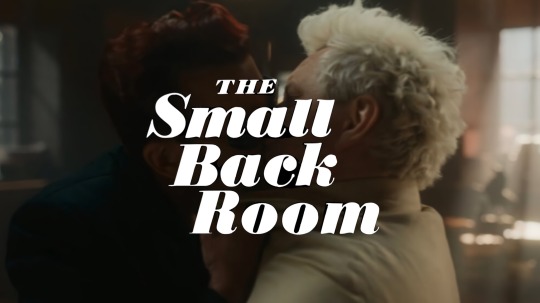
Our story begins with the arrival of Stuart, a British military captain, who makes his way through a labyrinth of offices towards a small building — the research section led by an eccentric, queer-coded, bow tie wearing professor Mair — to ask for help with a secret Nazi weapon.

That’s when the professor calls our hero, Sammy Rice — an engineer and bomb disposal expert in the service of Her Majesty’s government and, not accidentally, the most brooding, wounded man in Powell and Pressburger’s impressive canon of dysfunctional and alienated characters.
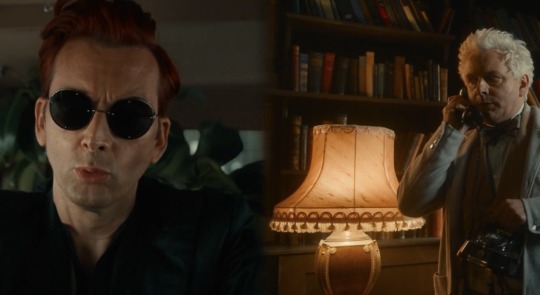
Due to a prosthetic foot keeping him from active service and confining to work in the titular back room instead, Rice is dramatically slipping into alcoholism. Haunted by self-loathing and disappointment with the internal politics, he can’t see the point of his research anymore.

Sammy is also conducting a clandestine affair with the secretary of his research unit, Susan. They live in the same building and meet regularly, but can’t openly enjoy their company or even dance due to his injury, which makes him even more bitter and pathologically determined to wear her angelic patience down.

Susan puts up with it until the minister is forced to resign. She knows that if non-scientists take over, their section will become useless, Rice even more difficult, and the war possibly lost. She urges him to take action and when he dramatically refuses to make a difference, she leaves him.
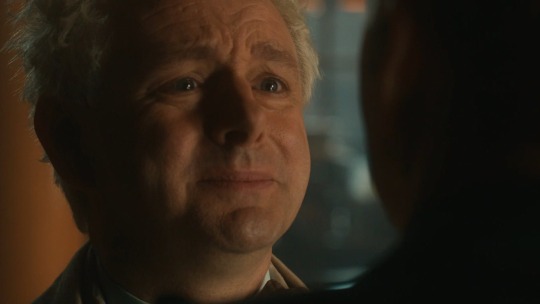
Seemingly at his lowest now, Rice becomes a sudden chance to redeem himself. Captain Stuart calls him about two unexploded booby traps found in Wales, but left to himself, he dies during a heroic attempt to dismantle one of the thermos-like devices before our engineer arrives at the scene.

In a nerve-jangling finale, Stuart’s notes help Rice dismantle the second device. He becomes a hero, gets an officer commission as head of the new scientific unit, and discovers that Susan not only came back in the meantime, but repaired everything he drunkenly destroyed in the apartment after their breakup.
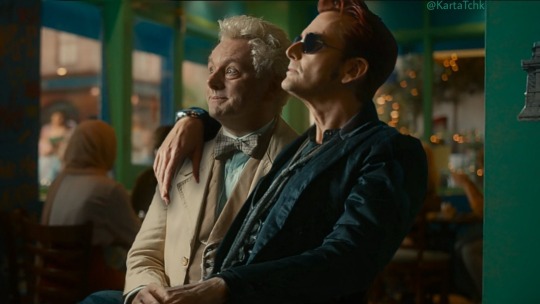
The parallels seem straightforward enough for me to add that in this context the role of Maggie through most of S2 may particularly reflect Crowley’s stagnancy in both work and love life. And if you’re unsure why the demon identifies with the heroic roles and characters, you might want to read this post on the subject.

Now, The Small Back Room was distributed in the US under another title — Hour of Glory. Which happens to be a specific Bible term referring to Christ’s “hour”, the period supposed to consummate all of his work on Earth and reveal God’s ultimate plan of salvation: the Son’s death.
John 12:20-36 Jesus replied, “The hour has come for the Son of Man to be glorified. Very truly I tell you, unless a kernel of wheat falls to the ground and dies, it remains only a single seed. But if it dies, it produces many seeds. Anyone who loves their life will lose it, while anyone who hates their life in this world will keep it for eternal life. Whoever serves me must follow me; and where I am, my servant also will be. My Father will honor the one who serves me. Now my soul is troubled, and what shall I say? ‘Father, save me from this hour’? No, it was for this very reason I came to this hour. Father, glorify your name.” Then a voice came from heaven, “I have glorified it, and will glorify it again.” The crowd that was there and heard it said it had thundered; others said an angel had spoken to him. Jesus said, “This voice was for your benefit, not mine. Now is the time for judgment on this world; now the prince of this world will be driven out. And I, when I am lifted up from the earth, will draw all people to myself.”

Christ’s hour began in the garden — this time the garden of Gethsemane — as he prayed passionately for the cup to be passed from him, similarly to Aziraphale declining Metatron’s offers on screen, both regarding the hot drink and his reinstatement as part of the Heavenly Host:
Luke 22:42 “Father, if you are willing, please take this cup of suffering away from me. Yet I want your will to be done, not mine.”
All throughout the Old Testament, we see God’s wrath being described as a cup poured out on sin and those guilty of it. By accepting it, Jesus took the toll of all the sins — from Eden up until the last one to be committed right before his Second Coming — on himself, for the sake of his beloved humanity.
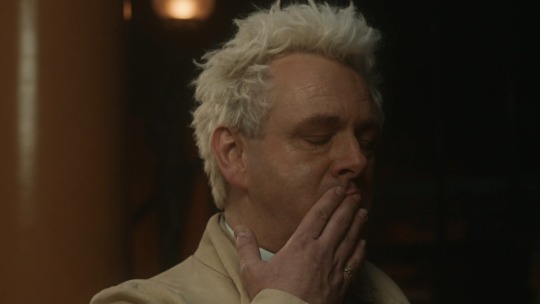
The passion of Christ continued as Judas betrayed him with a kiss, his disciples abandoned him, and the high priest accused him of crimes he was not guilty of. Even Pilate, the prefect of Rome, pretended to uphold the law; and remember we already expect a S3 trial based on another Archers movie.
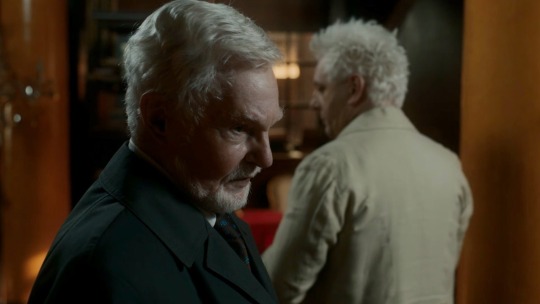
All in all, it’s an hour of great injustice and pain, but also glory of God. We’re led to believe that the Ineffable Plan will similarly triumph over the great one (or whatever Metatron tries to implement at the moment), as it did in S1. And its ending will be a good one, back in a garden.
#bible fanfiction#actually quoting bible#cup of suffering#give me coffee or give me death#the small back room#hour of glory#good omens#good omens meta#good omens analysis#final fifteen#crowley#crowley is a superhero#aziraphale#supreme archangel aziraphale#ineffable husbands#yuri is doing her thing#drinking coffee#an oat milk latte with a dash of almond syrup
76 notes
·
View notes
Text
I believe a woman is a human being who belongs to the sex class that produces large gametes. It’s irrelevant whether or not her gametes have ever been fertilised, whether or not she’s carried a baby to term, irrelevant if she was born with a rare difference of sexual development that makes neither of the above possible, or if she’s aged beyond being able to produce viable eggs. She is a woman and just as much a woman as the others.
I don’t believe a woman is more or less of a woman for having sex with men, women, both or not wanting sex at all. I don’t think a woman is more or less of a woman for having a buzz cut and liking suits and ties, or wearing stilettos and mini dresses, for being black, white or brown, for being six feet tall or a little person, for being kind or cruel, angry or sad, loud or retiring. She isn't more of a woman for featuring in Playboy or being a surrendered wife, nor less of a woman for designing space rockets or taking up boxing. What makes her a woman is the fact of being born in a body that, assuming nothing has gone wrong in her physical development (which, as stated above, still doesn't stop her being a woman), is geared towards producing eggs as opposed to sperm, towards bearing as opposed to begetting children, and irrespective of whether she's done either of those things, or ever wants to.
Womanhood isn't a mystical state of being, nor is it measured by how well one apes sex stereotypes. We are not the creatures either porn or the Bible tell you we are. Femaleness is not, as trans woman Andrea Chu Long wrote, ‘an open mouth, an expectant asshole, blank, blank eyes,’ nor are we God’s afterthought, sprung from Adam’s rib.
Women are provably subject to certain experiences because of our female bodies, including different forms of oppression, depending on the cultures in which we live. When trans activists say 'I thought you didn't want to be defined by your biology,' it’s a feeble and transparent attempt at linguistic sleight of hand. Women don't want to be limited, exploited, punished, or subject to other unjust treatment because of their biology, but our being female is indeed defined by our biology. It's one material fact about us, like having freckles or disliking beetroot, neither of which are representative of our entire beings, either. Women have billions of different personalities and life stories, which have nothing to do with our bodies, although we are likely to have had experiences men don't and can't, because we belong to our sex class.
Some people feel strongly that they should have been, or wish to be seen as, the sex class into which they weren't born. Gender dysphoria is a real and very painful condition and I feel nothing but sympathy for anyone who suffers from it. I want them to be free to dress and present themselves however they like and I want them to have exactly the same rights as every other citizen regarding housing, employment and personal safety. I do not, however, believe that surgeries and cross-sex hormones literally turn a person into the opposite sex, nor do I believe in the idea that each of us has a nebulous ‘gender identity’ that may or might not match our sexed bodies. I believe the ideology that preaches those tenets has caused, and continues to cause, very real harm to vulnerable people.
I am strongly against women's and girls' rights and protections being dismantled to accommodate trans-identified men, for the very simple reason that no study has ever demonstrated that trans-identified men don't have exactly the same pattern of criminality as other men, and because, however they identify, men retain their advantages of speed and strength. In other words, I think the safety and rights of girls and women are more important than those men's desire for validation.
J.K. Rowling
#jk rowling#j.k. rowling#pro jkr#jkr#they basically made her write her essay from 2020 again and still will not read this
29 notes
·
View notes
Text
Viv said "someone will die" and I think "of fun"
Oh. I'm too tired to get my thoughts down in a proper analysis post. But I wanted to get my thoughts down before the Season Finale Drops on Tomorrow.
But I think Lucifer will die in Hazbin Hotel.
Alastar is what you more imagine when you imagine a traditional "Satan/Devil" figure. He literally takes joy in people's tortured screams and suffering and is what would be more commonly associated with the "biblically accurate" Satan idea as how the torture of Hell is described in the Bible. (and yes, I know Hazbin and Helluva are not "biblically accurate" lol)
But Alastar in "Stayed Gone" literally sings about dismantling the Status Quo, and he is broadcasting this to the entirety of Hell, I don't think that he's just saying this as a threat to Vox (yes that's a huge part of it) But I think Vox is a minor part of the bigger picture. It's about changing the status quo of Hell as a whole.
And I really think his Goal is to take Lucifer's place. Rising to power as the new ruler of hell.
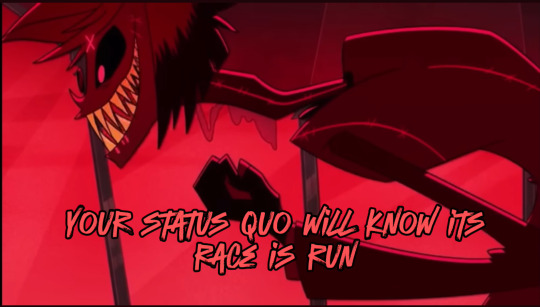
Yeah... this was for Vox. BUT. It was for all of Hell. This broadcast. And I think it's deeper then just one-upping Vox (that's just a bonus)
either that or Alastar is purely doing this for entertainment... Just for the shits and giggles..... But I think we all know there's more to it then that.
But if the theory that I speculated about and that he's owned by Lilith (or Eve) and that they hold a massive grudge against Lucifer for dooming humanity and wants to see his downfall anyway.... Then that completely also lines up with what his "owner" probably wants as well. And he gets to have fun all the while before his chain is yanked back before he will have full control. But he is going to have fun rising to power and getting there before he's told he has to stop playing with his toys....
Which is probably why in the preview it seems he tells Charlie about the Dead Angel... he wants her to know this. For her to go after the angels herself. To fight to protect her people..... and why....
This:
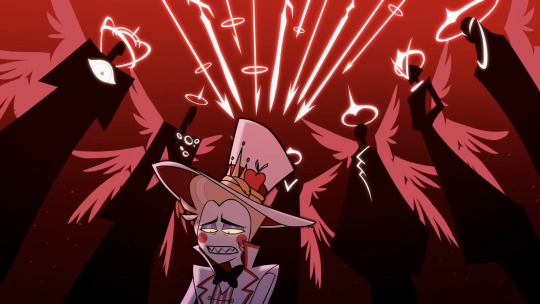
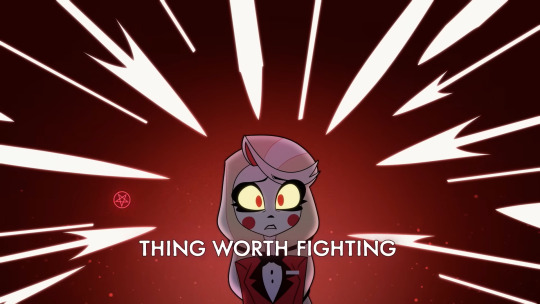
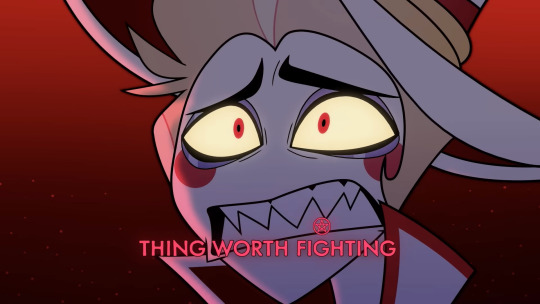
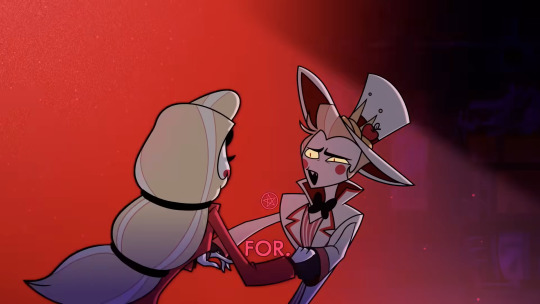
He stands in way of the Holy weapons pointed at his daughter.
And, like... realistically, considering what kind of story this is... and the themes of the story have been about the Older Generation wanting to protect the younger generation and that the younger generation wants to take the big risks to change the current status quo to bring hope and dreams alive for the older generation....
It just feels like the type of story where a Father on Shakey terms with his daughter would self sacrifice himself to protect her.
I think Heaven will win this battle, but the war will hurt and will be for season two.
#Hazbin Hotel#Hazbin Hotel Spoilers#danachan's rants#for you pink since you wanted more concrete thoughts on this
29 notes
·
View notes
Text
heres an anecdote ive been thinking about.
i grew up in an evangelical christian cult under very extreme surveillance and censorship of incoming information. i didnt know the actual history of christianity, the real history, not the fake stuff i was taught, for many, many years. as far as i knew, the bible i read cover to cover every year was the only bible there had ever been, was the literal word of god, and the only issue was how to translate it from the original hebrew and greek. i had no reason to question this until high school, when my brother and i were sent walking around the neighborhood wearing brightly colored "ask me about jesus" tags.
an older neighbor working on his front lawn called us over. "okay," he said. "ill bite. tell me about jesus." so of course, we gave him the story we had been taught. original sin, hell, jesus dying on the cross, etc. etc. he listened patiently, then talked a bit abt his own personal spirituality. i dont remember the specifics, i think he actually was a sort of christian in a way, but only as a personal, private thing, no church, smth we had never encountered before. more importantly, he told us to look up the council of nicea.
our parents were very vague about their answer, so i ended up looking it up on wikipedia. i read that the bible as i knew it was only one canon, defined fairly recently, by one faction of the church. i learned about the existence of the apocrypha, that a bunch of old men had sat down and decided which books of the bible they considered the real word of god, which were fake.
of course, our upbringing had already provided their own magical answers for this kind of problem, but the seed was planted, alongside many other little seeds that were beginning to sink in and take root. what i knew came into direct conflict with the outside world, which gave me a point of entry for questions. how do we know which men were inspired by god? what did the other rejected books say? through this train of thought i came to find countless questions about the bible that were not as conclusively answered as i had been led to believe. prior to this, my conflicts with christianity had been on the basis of my own gut feelings. this feels wrong, arent i hurting people? but that one clue, the council of nicea, gave me a point of reference to start dismantling the whole theological basis for what i was taught.
eventually i found out that even the very concept of hell was a fabrication. i had read the bible faithfully for my whole life, once thru, cover to cover, every year. things like a lake of fire, eternity separated from god, a lot of the pieces that make up the popular concept of hell were there, scattered throughout, but when i realized that these fragments i had read had been manipulated and conflated to me from toddlerhood, that the bible never actually describes hell as i knew it, well. the whole tower crumbled.
for years i had struggled with the basic conflict of seeing with my own eyes that the things i said and did hurt people, that many horrible things had been done in the name of god. this was and always had been the original, basic instinct for my difficulty with christianity. but hell, hell had been the ultimate lynchpin. if hell was real, if not being christian doomed you to an eternity of literal torture, then any hurt i and other christians inflicted was justified. i truly evangelized and told people they were bad and going to hell out of a brainwashed desire to save them. i was terrified for them, for myself, for everyone. i dont think i will ever fully be able to convey how afraid i was, from my very first inklings of consciousness. hell tied it all together. i would do anything, anything to keep myself and those i cared about from suffering for eternity. even if my friends hated me, i had to plant the seed and pray for god to grow it in them. i had to.
once hell came into question, that fear finally began to lighten. cracks in my prison. a critical piece of information that had been carefully hidden my entire life. information that changed everything.
when youre sufficiently brainwashed, its hard to know where to even begin to question the world as you know it. your gut might tell you something is wrong, but when your world has self contained answers for everything, when it all seems to be one smooth globe around you, it can be hard to find the cracks. it seems impenetrable.
sometimes you need a little help to find the cracks.
i dont rlly have a point to this post, i just think about that weird old guy a lot. he sold heirloom tomato seedlings out of his backyard for $5 each, had torn up the entire yard without his landlords permission, and god those tomatoes were the best ive ever had. i wonder if hes still around, selling tomatoes, teaching people to question what theyve been told. id like to tell him how much he changed my life.
#headspace#idk just musing#this was gonna be another post but this anecdote took over so i cut the other stuff for later lol#i hope youre having a great time tomato guy
6 notes
·
View notes
Note
I'm not indian, I'm actually mexican, so take what i say with a grain of salt, but the conversation about hindu right wingers reminded me of something interesting I saw in college, about how feminist reinterpretations of female historic figures from hindu tradition was seen as left wing and radical in the 90s, when it first started, but as the nationalist movement grew and the xenophobia against other religions and communities within india grew, they appropriated part of the feminist discourse regarding feminine figures like goddesses, heroines or philosophers, to incorporate them into the discrourse of "hinduism is better than islam".
What I find interesting about that is that i've seen similar things happen with feminist reinterpretations of women's history in every culture. For example, I've seen christians defend christianism as a "truly equal religion" based on the ideas that feminists from the 80s build up about the value of biblical figures like Mary, Magdalen and Judith, or important nuns and saints like Christine de Pizan. Nowadays Christians talk about those ideas as if they originally came from christian communities, when they actually come from feminists that were ostracized for daring to make an argument against the oppression of women. These feminists were trying to use an argument that made sense under a christian worldview to criticise christianism from inside, they weren't celebrating christianism as perfect or saying it didn't need any change, but the complete opposite.
And I've even seen similar things within indigenous mexican communities or even in feminist interpretations of judaism or islam, where feminists try to use arguments based on tradition to criticise modern day patriarchy... it's never an attempt to celebrate how perfect the culture is, but an attempt to use it's own logic to dismantle it... but then, pretty soon after they begin making this argument, right wingers apropriate their discurse to make it seem like their culture "was always feminist".
honestly yeah ive seen this happen w christianity too lmfao like christians were big anti-gay losers for centuries and then the second they wanted to argue that theyre superior to muslims & more specifically middle easterners, they were like "well WE dont think gay people should die for being gay!" like um luv the story of soddom & gomorrah didnt start w islam and stoning as a punishment was even more prominent in the bible...
i cant comment on hinduism or judaism but i can say that at least islam and christianity have pretended to be progressive (& sometimes actually became more progressive) simply to be able to argue that theyre the more Humane and Better religion
26 notes
·
View notes
Note
It was years ago that you said this, buuuuut...can I ask you to continue on why Dreamworks is better than Disney?
Sure!
I have no memory of what I said before but it basically comes down to the matter of adaptation.
They both definitely have their values. Walt Disney and the company he created turned dark, unapproachable fairytales of caution into lighthearted narratives with hope and wonder. There is a lot of value in that and Walt Disney himself had a childlike perspective that, in tow with his team's inventive newness in creating animated sequences, really turned the tide for storytelling through cinema. No child was too old to feel like they could take part in it.
To me, the 1990s and early 2000s were a time of Disney creating and perpetuating the fairytale conventions that Dreamworks in its foundation seemed to actively try to dismantle. Again, both have their value, but at a certain point Disney became a studio that was churning out existing fairytales and Dreamworks flourished as a studio that took a different approach.
Yes, the Prince of Egypt was based on the Bible and How To Train Your Dragon was based on a series of books by Cressida Cowell but they made it their own in a refreshing way. There's also original concepts like Megamind and Kung Fu Panda that are just absolutely fantastic stories.
I can't speak for Dreamworks now since I stopped watching their movies after my dad left the company but specifically in their first 20 years, you had this company that wasn't afraid to go out of the box, make fun of the box, or even absolutely demolish the box. Sequels like Kung Fu Panda 2 and How To Train Your Dragon 2 are deep and soulful. They bring out a conflict in the existing protagonist that has to do with their past, which Disney didn't do justice until Frozen 2 (so good!)
I think Disney not only created this box for themselves but after their boom in the 90s they just became this money making machine. It was no longer about art-making. What fairytale can we do next? Here's this direct-to-dvd sequel. And now with the live-action. Do you see Dreamworks doing that? Not yet at least. They respect the the original animators and storytellers.
I'm not against adaptation. I get it. The old version is problematic? Fine okay. But if you're making it just to make it, what are you even doing? There's a huge difference between making a live-action version of a movie that's basically the same thing and creating something like Once Upon A Time (tv show, 2011, technically ABC so Disney but not really in their control as far as storytelling) where there are twists to the fairytales and something that is unexpected or has shifted. Something is added or detracted in an interesting way.
So yeah I guess when I say Dreamworks is better I'm referring to the fact that they have more quantity as far as substantive work that isn't an adaptation, and that even the work that is has something very human and special and unapologetically adult. A lot of animated movies these days treat kids like babies, and I was grown up treated by Dreamworks like an adult.
Of course there are exceptions to this and I hate when people generalize. Tarzan, for one, is something very different to the box and Madagascar 3 is pretty ridiculous. It's just in general, I really value Dreamworks setting out and honestly saying "okay so Disney is making money this way, but fuck that, we're gonna do it this way". We're gonna animate one of the darkest stories in the Bible, showing slavery and death and abuse without romanticizing it and add a tragic brotherly bond that was never meant to be. We're gonna have a protagonist in a fairytale that's a belching ogre who doesn't know he's in a fairytale and show a version of love that is the least superficial it's ever been in a fairytale (I think Shrek is also based on something now that I think of it but still). We're gonna make a cushy, cuddly panda this kung fu hero with a heart of gold who doesn't really question that a goose is his dad because found family. We're gonna create a protagonist with a lot of flaws according to his Viking island, but compassion when it counts, when he faces a dragon tied up and fearing for his life and, seeing himself, chooses mercy. We're gonna create a movie that makes fun of the archetypes of heroes and villains but turns out to accidentally be one of the best movies of all time (I'm not biased towards Megamind). You get the idea. I say Dreamworks is better because I can respect them. I can't say the same for Disney anymore. If Dreamworks starts doing live-action, this will change.
I hope that answers your question. Thank you so much for asking and sorry about the chaos!
Disney movies that are must-sees:
Cinderella (1950), Sleeping Beauty (1959), Mulan (1998), Tarzan (1999), The Princess and the Frog (2009), Tangled (2010), Frozen (2013), Frozen 2 (2019)
Dreamworks movies that are must-sees:
The Prince of Egypt (1998), The Road to El Dorado (2000), Shrek (2001), Kung Fu Panda (2008), How to Train Your Dragon (2010), Shrek Forever After (2010), Megamind (2010), Kung Fu Panda 2 (2011), Puss In Boots (2011), How To Train Your Dragon 2 (2014), Puss In Boots: The Last Wish (2022)
I don't know what the heck was happening on Flower Street in 2010 and 2011 but something about that year was REALLY GOOD. Yes let's make five movies in a row that a random character effects animator's daughter will absolutely love.
6 notes
·
View notes
Note
Who is Francis Bacon? I saw Nick and Tony commenting "Good riddance" and "I never liked him" under a post mentioning him. Was he disliked by George and James? Google didn’t tell me much about him.
FRANCIS BACON!!! I love James and all, but in the long span of history, Francis Bacon is probably more important than James or George Villiers.
When Francis Bacon shows up in period dramas, he's usually depicted as a slimy politician. And it's not like he's slime-free, that's inherent to being a politican. However, what really makes him important is that he was a copious writer who enormously influenced the development of science. I'm gonna do my best to simplify the explanation so please excuse the broad brush.
At the time he arose, the dominant method of knowledge-formation was scholasticism, or the study and analysis of authoritative texts such as Aristotle, the Bible, etc., and the use of deductive reasoning to extrapolate from established facts and to resolve apparent contradictions between the ancient philosophers and Christianity. Bacon advocated essentially the opposite: not to rely upon authorities of the past (as after all, cracks were already starting to show, e.g. Copernicanism) but to actually observe the natural world and use inductive reasoning, generalizing from observations, to come to conclusions about the natural world. This is the foundation of modern science.
This radical proposal was the seed for the great flourishing of science in the 17th-18th centuries. The explosion of learning of the Royal Society - which has as its motto, nullius in verba, "take nobody's word for it" - is due to influence from Bacon. Descartes, Spinoza, Leibniz, Hobbes, Locke, Voltaire, were all influenced by Bacon. This idea that Bacon put forward was such an incredibly powerful weapon for forming new ways of knowing and dismantling old beliefs, that I'm not sure there's another single person who is more responsible for the Enlightenment (other than Descartes, but he was later).
Bacon's political career, though, was rocky, and he was eventually disgraced after a corruption trial. Many historians say that George Villiers threw Bacon under the bus to avoid attention paid to his own corruption, and James allowed this to happen to save George. So I'm a bit sad to hear the actors say that but it also makes sense.
The (somewhat questionable) story is that Bacon died after catching pneumonia due to wandering around in the cold stuffing a chicken with snow in an experiment to see if that would effectively preserve the meat.
Also, Francis Bacon was gay.
4 notes
·
View notes
Note
In my fic, Deacon's birth name is Lil' Beckett. It's inspired by similarities someone pointed out between him and Beckett (FO76). Both are comedians in sunglasses with anti-chem and pro-alcohol attitudes who terminated their gang memberships by terminating the gang, and you know what they say: A nuke a day keeps the smooth skin away! If 76's vaultie is brutally killed by the Blood Eagles after helping their (optional) boyfriend dismantle them, they could easily be the basis for Barbara's story.
I'll be real with you, I only play Fallout 76 but rarely. I'm mainly there for the Mothman content. I don't know enough FO76 lore to play around with it. (Yet. I dunno, I don't really enjoy multiplayer anything.)
One thing I have a love/hate relationship with in Bethesda games is the open spaces they leave in characterization. On one hand, lots of space to headcanon. On the other, sometimes those spaces echo so much that they drown out the actual character. (/cough like poor Harkness) So I think anyone can and should decide for themselves what Deacon's birth name is.
The word/name Deacon, that comes from the Greek word diákonos, meaning servant or messenger. Either way, it signals to me that he's dedicated his existence to serving the Railroad and its cause to the end of the line. It's also interesting to me that deacons cannot hear confession and give absolution, anoint the sick, or celebrate mass, all things that give priests a sort of sanctity within the Catholic tradition. It's a very precise box he's drawn around himself, if you think about it. He can help, he can guide, but he doesn't feel worthy of anything beyond that. He believes that his true self is not worthy of emulation, not worthy of admission into the Railroad itself, and so Deacon fits him very well indeed.
I chose Jonah because it means 'dove', a symbol of peace. Deacon's peace ended and he shed that name, swapped it for something else (Johnny D. for John Doe) signifying his (perceived) worthlessness and lack of identity after what happened to him. And because of the story of Jonah in the Bible, which honestly I only knew bits and pieces of before I read it recently. At its base it's a story of compassion, forgiveness, and redemption. and Deacon's journey throughout 'you who wish to conquer pain' is going to be full of both things, though maybe not in ways he might expect.
#hillary replies#other: deacon#im an atheist actually but there is something worthwhile in studying stories of all kinds even biblical ones
7 notes
·
View notes
Note
christopher lightwood vs the butterfly effect. fodder. we know he invents a bunch of things, maybe averaging 2-3 groundbreaking things per year and he works with Grace so that could add more. gets along with downworlders like he fits in better with them than shadowhunters, it's not too much of a stretch to assume he probably thinks about mundanes with similar dignity and does have some level of perceived responsibility to protect them from demons downstream from his wanting to make bigger impacts through his inventions (a lot like me with urban design).
anyway, we also know basic history between 1904 and now, and the world of tmi etc has been consistent with ours, and a world in which christopher lightwood's last invention was fire messages. two world wars. bunch of racism and patriachy. ecocide. concerns about the environment and human consumption cumulating in whatever is happening with our weather right now.
would christopher come up with some mathematical relationship of the mundane society events that result in greater demon liveability and breeding rate on earth? would he get into social justice as a result? (I feel like James would for pure social justice reasons if he had the first clue how and another shadowhunter to do it with). or maybe he would do so more passively with his inventions--he wouldn't want to limit them to shadowhunters would he?
anyway my point is society as we know it has massive potential to be Very Different. so go wild. brainstorm it. did ww1 and 2 even happen? is climate change even a thing in this world? are mundanes still kept ignorant of the shadow world or is that exposed for how many problems it causes and is this newfound knowledge helping people rethink racism? ableism? how we get along with other species of living things that aren't human?
you've got 120 years to work with. australia has just become a federation and in many parts of the world racial segregation is so normalised anything else seems absurd to most of society. trickle down economics is yet to scam many. the fossil fuels industries are yet to learn from the tobacco industry about how to prevent the spread of you know, information that isn't mixed with misinformation. the word 'homosexual' has not appeared in any bible ever (and shadowhunters care about religion, all stories are true).
go crazy (or follow this however far you have the time for!)
I've joked before that the show universe is what would've happened if Christopher stayed around, just because of how more open to technology they are. You are right; the world does have massive potential for change. But I also don't feel that he would cause so much change upon the mundane world as to prevent the world wars: they're too big and too soon, too many of the moving parts are already in place: WWI was caused by a domino of alliances, remember, alliances that you couldn't just easily dismantle in the ten years between ChoT and the assassination of Franz Ferdinand.
I feel like the Clave has its version of the Prime Directive for a reason, and more than just "we don't want to cause widespread panic among mundanes": they and Downworlders, even Downworlders like werewolves or working-class faeries who seem fairly mundane by Downworld standards, have so much more power than mundanes. If mundanes knew about the Downworld, and Downworlders could interact freely with mundanes as themselves, it'd create a power imbalance that'd just be so unfair for the mundanes involved. I feel like Christopher would understand that. But I do also feel that it would be majorly depressing for him: thanks to mundanes, the world is on a massive downhill slide but there is nothing he can do to stop it, not without creating a whole different kind of ethical dilemma.
But things that really kick in and happen later, like climate change, or trickle down, or some of the rollbacks of progress happening now, those I think do have the potential to change. Not directly through Christopher, but we do know that Downworlders don't have the same strictness of interference policies that the Clave does (Magnus Bane infamously influencing many mundane events) and so we don't know who might bring his ideas out into the mundane world for him.
4 notes
·
View notes
Text
A personal journey with me through Martin Scorsese movies
This week Martin Scorsese celebrates his 80th birthday, and this is something I wrote as a homage to the man who, in many ways, changed my life.

‘My whole life has been movies and religion,’ Scorsese once said. Maybe our similarity in that regard is the reason I've been drawn to his journey as director and lover of cinema.
I like to imagine that our religious upbringing allowed us to see beauty in believing in things bigger than ourselves. God as the man with a moving camera. Cinema as lifelong devotion.
Watching ‘Goodfellas’ for the first time was, in many ways, a religious experience for me. Like the birth of Jesus Christ, it constituted a before and after moment in my life.
Back then, I was in love with ‘The Godfather’ for its aesthetic choices: classical music, scenes of rural Italy, men from a different time. It had an elegance that reflected the past in its most violent and lovely moments. ‘Scarface’, another obsession of mine, was almost the opposite: raw and dirty, with Latin-American influences and a macho lead character. Its whiplash of violence and amorality left me breathless.
It was difficult for me to imagine that a movie about gangsters could look not outwards into the world, but inwards. That it could tell stories of love and friendship amongst thieves, and how someone can be drawn to criminality, not out of duty or need, but because of the enjoyment of it all—a cautionary tale more fantastic than the idea of an untouchable family business, or the inevitability of a ruthless immigrant choosing a life of crime.
So when I pressed play, and Ray Liotta said his famous line “As far back I can remember I always wanted to be a gangster”, I knew Marty would dismantle all the rules I knew about making movies.
‘Goodfellas’ cemented my love for gangster movies, not as a reflection of the rough realities of the world out there, but as a unique way to tell stories about criminals that didn't treat them as objects—like most cop movies—but as humans.
I got to know Scorsese through his gangster movies first. However, out of his prolific filmography of 25 feature films, only a handful are about them: ‘The Departed’, ‘Casino’, ‘Mean Streets’, ‘Gangs of New York’, ‘The Irishman’—and ‘Goodfellas’, of course.
His remaining filmography is rich and varied. In them, I noticed, his characters become mythological beings, and their end is akin to what I learnt reading the bible: a man's worst destiny was not to be punished by his enemies, but by God himself.
Many of them feature the male psyche and its inner demons. Some men are evil (‘Cape Fear’, ‘Taxi Driver’), others violent (‘Raging Bull’) or mad (‘Shutter Island’, ‘The King of Comedy’). For them, as in Shakespeare, violent delights have violent ends.
Sometimes, though, the demons are New York City, misogyny, colonization. The world. God himself.
Paul Hackett's full-circle punishment in ‘After Hours’, where no good deed goes unpunished. The suffering of the unhappy housewife turned widow, whose dream of being a singer is less dream than it is curse, in ‘Alice Doesn't Live Here Anymore’. The profound sense of loss in the romance of Newland Archer and the countess in ‘The Age of Innocence.’ The persecution of jesuit priest Sebastião Rodrigues for his faith in ‘Silence’, a mirror of the persecution by the jesuits themselves in South America.
What fascinates me constantly about Scorsese's filmography is that it doesn't reflect a devotion to Christianity. In fact, it examines his conflicting beliefs about Catholicism and its dogmas through the plight of his characters, and we get to see it all through God's eyes.
In the words of John Cassavetes: "I think Marty has one God, and that's film."
youtube
15 notes
·
View notes
Text
~ Gender Expression Stereotypes ~
Figuring out my own gender is hard or exhaustively idea or thought that crosses in my head that i think i can't figure it out on my own. Does gender is the basis of someone's personality? In my 18 years of existence, the question "what is your gender?" that most of my peers that i always cannot answer directly, it's not that i can't actually answer it, it is because if i answer their question i am afraid that they will not believe what will i answer to them because most of the times they ask it not out of curiosity but because they assume of what truly i am and they have to confirm it, because people admit it or not we all have stereotypes of someone's actions that if we think that is wrong it will really bother us and most of the times is we have a lot stereotypes when it comes to gender.
When it comes to expressing yourself there are "gender beliefs or stereotypes" in our country, here in the philippines the most debatable if not it is crucial thing that most of us are having stereotypes in gender that actually starts when your only a kid and that never ends until you get old, for example, when you were a child your parents expect you to like monochromatic things such as toys,clothes, and even the color that you like, and the idea that will mark on you basically is that if you are a boy you are supposed to like things what are your parents what they think appropriate for boys only.
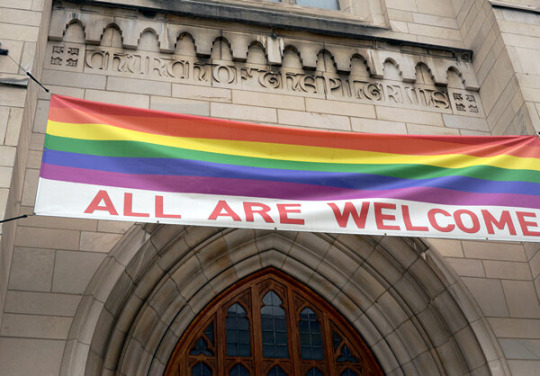
When it comes to my own gender i am always hesitant or sometimes in denial to describe it because of all stereotypes that the adults that influence my own ideas in life that most people don't believe right now because we are in modern setting and we have to accept that, like most of the adults saying that being part of lgbt community is a sin but there are articles are saying
One aspect of an individual's identity is their gender identity and/or sexual orientation, and it can be safer for them to keep that aspect of themselves private. They might not be ready to come out, be still figuring out their gender identity and/or sexual orientation, or feel like their peers won't accept them for who they are.
The few bible texts that have been used frequently to vilify same-gender lovers may be easily dismantled and contested. However, I am at a stage in my life and ministry where I don't need a bible verse to defend my holy value or a bible narrative to justify my experience of life. One can easily discover multiple signs of same-gender love and attraction occuring in scripture, and even it seems to be affirmed. I simply have faith in the goodness of God, the holiness of love, and the variety of life. First and foremost, same-gender lovers are lovers, and the Bible does not condemn love; in fact, it uses love as its yardstick for determining what is holy.
REFERRENCE:

I also do not understand that even nowadays being part of this community is really debatable topic because most of people is being ignorant and have a strong faith in god or the actual church are not okay with homosexuality and sadly, even your own family can potentially reject you as part of them.

For young guys who are homosexual, bisexual, or other males who have sex with men, homophobia, stigma, and prejudice can be especially difficult. When compared to other students in their schools, these unfavorable opinions raise their risk of encountering violence. Violence can take the form of actions like bullying, teasing, harassment, physical assault, and actions that are tied to suicide.
Youth who identify as gay, bisexual, or another sexual minority are more likely to experience family rejection. The likelihood of people going without housing rises as a result. LGBT youth make up about 40% of homeless youth. In a 2009 study, friends who had more supportive families were compared to homosexual, lesbian, and bisexual young adults who had experienced severe family rejection.
REFERRENCE :
I hope someday these crucial topic become a reason that all of people become liberated from someone's opinion, because our life doesn't only revolve around these topic we have to be more open minded and become a moral person, people should feel freedom not only in their own thoughts but feel freedom around them either physical or emotional.
--Jeyss--
2 notes
·
View notes
Text
Ezra and Esther
Being an ancient book, the Bible makes many of its best points using all sorts of literary techniques that are unfamiliar to modern readers. Sometimes these are subtle flourishes that only someone reading truly carefully would ever notice. But other instances are totally overt, fully visible, and noticeable by even someone just casually perusing the text. The willingness of the narrative to depict the same individual as being two different ages at the same time is a good example: to most moderns, passages that do that have a clumsy feel to them and suggest that some ancient editor must have been asleep at the switch and simply failed to see a giant discrepancy that could easily have been fixed. (To see an essay I published years ago about that specific feature of the scriptural text, click here.) But discrepancy is more wisely taken as a literary feature of the text, as a kind of riddle fully intended to teach something to those who take the time to solve it.
Also in that category is the apparent willingness of Scripture to present two versions of the same story that are essentially incompatible with each other. The most famous example of that would be in the very beginning of the biblical text, where Genesis starts off with two wholly irreconcilable accounts of the creation of humankind. Many and clever have been the attempts of countless commentators to “fix” the problem by finding a way to fit the stories together into a single, cogent narrative. But the far more interesting way to approach the problem is to understand this opening riddle as one of many places in the text of Scripture in which the same story is told in two discordant versions not to confuse or to annoy, but to invite the reader to exploit the differences between the two conflicting texts to learn a lesson that Scripture prefers for some reason to teach subtly rather than fully openly.
As Purim approaches, I’ve been thinking how that approach to mismatched texts can be applied not solely to texts within a biblical book, but also to the larger biblical corpus itself. (I have an essay about that too: click here.) In other words, taking the Bible as a book (as opposed to a collection of books) allows the reader to approach the full text of Tanakh as a single literary unit to which the interpretive rules generally brought to bear in explicating passages within specific single books can be fruitfully applied.
In the second of my two essays mentioned above, I applied this principle to a huge difference between the biblical books of Jeremiah and Daniel, one that would be simple to wave away as a mere instance of misspelling on the part of one or both authors. Today, I would like to apply that same principle to the biblical books of Esther and Ezra. And then I would like to apply the lesson that comparison suggests to our present situation as Jewish Americans.
The Book of Ezra, one of Scripture’s most understudied books, begins where Chronicles leaves off: with the surprise announcement that, as one of his first royal edicts, Cyrus, king of Persia, formally ended the exile in Babylon and told the Jews living in modern-day Iraq and Iran that they could return to Israel and re-establish Jewish life in that place. It’s a complex story. The edict of Cyrus itself appears in Scripture in several different versions. The specific relationship between the work of the Chronicler (as the anonymous author of Chronicles is chummily called by scholars) and Ezra and its own sister work, the Book of Nehemiah,is a matter of endless scholarly debate. But, for all that, the storyline itself is clear as day. In the waning days of the Kingdom of Judah (the sole remaining Jewish state in its day, the northern Kingdom of Israel having been dismantled by its Assyrian overlords more than a century earlier), the Babylonian hordes arrived at the gates of Jerusalem. There was a brief window of opportunity during which the coming debacle could have been averted. (The prophet Jeremiah was at the peak of his powers in the months leading up to said debacle and promote surrender as a means of survival.) But the king of Judah wouldn’t hear of it. And what ensued was the razing of Jerusalem’s walls, the slaughter of countless citizens, the destruction of the Temple, and the annihilation of the nation’s hopes for some sort of continued existence as an autonomous state. What ensued is known as the Babylonian Exile. Some Jews—the poorest and least educated ones—were ignored. But the rest of the nation—the royal court, the scholars, the businesspeople, the upper and middle artisan classes—were taken off into exile and forced to attempt to survive while “weeping on the shores of Babylon.”
There is endless debate about the details: how many people went into exile, how many survived, how successful they were or weren’t in retaining their ties to their own Jewish culture while in a hostile environment. But none of that alters the basic the storyline: the Babylonians exiled some or many (but not all) the Jews and then, when they were defeated in turn by Cyrus of Persia, those Jews and their descendants were permitted to go home and it is their story that the Book of Ezra tells. Nor is the moral of the story hard to suss out: Jewish life in exile is possible, but the only real hope for continued Jewish existence lies in return to the land. Yes, Cyrus’s decree specifically permits any who wish to stay behind and support the returnees financially (“with gold, silver, goods, livestock, and valuables”). But the author’s point couldn’t be clearer: exile is barely bearable and only briefly. When the opportunity presents itself to return to Zion, the people who care about their own future get going—because that is where their future lies. From there, life progressed. In the chronology put forward in Ezra, Cyrus is replaced on the throne by Darius, who is followed by—surprise!—King Achashveirosh, known to all from the Esther story. (His “real” name was Xerxes, and he was followed by his son Artaxerxes, who was on the throne in Ezra’s own day.)
Let’s go back to Achashveirosh. I love that he has two names. (I do too, as do most diasporan Jewish types.) And I love that he’s mentioned not only in the book that is so much “about” him, but also in other books: here in Ezra and also once in the Book of Daniel (whose author thought he was Darius’s father, not his grandson. Whatever.) And thus does he serve as the link between Ezra and Esther by appearing in both, albeit briefly in Ezra and at length in Esther.
The storyline of Esther is known to all who have ever been in shul on Purim. But that story contains some riddles generally left unposed, thus also unsolved.
A terrible decree goes forth calling for true genocide, for the total eradication of the Jewish people. The edict is met with astonishment by the people, who are given a full eleven months to prepare for their execution. Eventually, things end up well. But I’m focused on what happens before that happens. The people is in a panic. They appear to inhabit every one of the 127 provinces of Achashveirosh’s empire. The portrait drawn by the Chronicler and by Ezra of a people temporarily banished from its homeland and more than eager finally to abandon exile and return to Israel seems oddly out of sync with the scene depicted in Esther. Cyrus reigned for about twenty years, from 550 BCE to 530. Darius reigned for about forty years after that. And then we have Achashveirosh/Xerxes, who came to the throne in about 465 BCE and who reigned for about forty years. In Cyrus’s day, the Book of Ezra has the Jewish people returning en masse to the Jewish homeland and leaving a few stragglers behind. But, a mere century later, the Book of Esther depicts a Persian empire with Jews living in all 127 of its provinces and apparently well settled in and, until Haman, secure.
And how do the Jews in the Megillah respond to impending genocide? (This is, of course, real genocide they were facing, not the phony kind modern-day anti-Semites see whenever Israel dares defend itself forcefully against its enemies.) They weep. They fast. They daub themselves with ashes, essentially pre-sitting shiva for themselves while they still can. But no one seems to remember that Israel—then called Yehud (the Persian version of Judah)—was one of those 127 provinces. And that there was no specific reason for the Jews, instead of cowering in terror, not to return to their own ancestral homeland and there to defend themselves against their enemies. This course of action—forceful, beyond justifiable, and possible even fully successful—this seems to have occurred to no one.
The Jews seem to prefer their misery. Mordechai forbids Esther to reveal her Jewishness to the king until precisely the right moment. But surely the Jews of Shushan knew that Esther was Jewish—how could they not have? They all seem to know who Mordechai is. And Esther was his ward, an uncle’s daughter whom he had adopted and promised to raise. Surely she too would have been known to all. And yet no one seems to light upon the idea of getting Esther to beg the king for permission to return to Zion and there, in their own homeland, to resist the terror-onslaught planned by wicked Haman.
And so we have two worldviews in conflict: the one set forward in Ezra in which it goes without saying that the future of the Jewish people depends on their ability to flourish in Israel and the one in Esther that seems to think that the best hope for Jews in the diaspora is to hope that salvation from even the most extreme version of violent anti-Semitism (i.e., the kind that promotes genocide as its end goal) is to pray that salvation comes, to quote Mordechai himself, “from somewhere.”
Or do we? Could the point of Esther be to show the folly of charting a future for the Jewish people by hoping for salvation “from somewhere” or anywhere? The Jews of Persia were saved because of Esther’s daring and Mordechai’s cunning. But that their plan works at all is presented as something just short of miraculous. The Jews of Persia are depicted as powerless and foolish…and wholly unable to see that their only real hope rests in returning to Zion and there flourishing out in the open and fully in the light as proud members of the House of Israel. Ezra simply starts off by taking that for granted. Esther depicts a people gone astray a mere century later. Reading each in each other’s light is meant, I think, not to confuse, but to challenge those inclined to suppose that Jews can be safe by relying on others and hoping for the best and, to encourage them, ayin l’tziyyon tzofiah, to see where the ultimate destiny of Israel lies.
0 notes
Text
THE JUDAS SPIRIT Let’s look at another way unseen demonic spirits operate in people’s lives. We all know the very prominent gospel accounts about Judas Iscariot, the disciple who betrayed Jesus. But there is something in his story that we can all learn from that I call the “Judas spirit.” In fact, if we do not understand the nuances of the Judas spirit, we run the risk of being its next victim.
Then entered Satan into Judas surnamed Iscariot, being of the number of the twelve. And he went his way, and communed with the chief priests and captains, how he might betray Him to them. (Luke 22:3–4) The name Judas is a transliteration of the name Judah, which literally means “he shall be praised.” Names are very important in the Bible, but they can reveal an even deeper reality about the spiritual realm, such as this: the Judas spirit is one of false praise. Some of the most diabolical attacks that I have undergone in my life were accompanied by false praise. Counterfeit praise is a telling sign that the Judas spirit is in operation. The disciple Judas sat with Jesus, ate with Him, and even ministered with Him, yet his heart was fertile ground for betrayal and treachery. I don’t believe Judas was an outwardly evil or sinister person, but I do think there was a spirit of greed and selfish ambition operating in his life that led to his destruction.
How can someone sing your praises one day and slander you the next? They are under the influence of a Judas spirit. One of the keys to dealing with this spirit is making sure that your own heart is pure.
Jesus said, “Hereafter I will not talk much with you: for the prince of this world comes, and has nothing in Me” (John 14:30). What did He mean by the statement “the prince of this world comes, and has nothing in Me”? Jesus was saying that He had nothing in common with the prince of this world, who is the devil. There was no similarity or congruence between Him and the enemy. Therefore, there were no legal grounds by which the accuser could bring a legitimate accusation against Him.
I once went through a very difficult experience with betrayal. It was distressing because I had thought the person involved was my friend. They would often sing my praises, yet they were under the influence of a Judas spirit. One day, a pastor from Texas came and ministered to our congregation. He called me out of the crowd and gave me a profound word of knowledge, telling me that I was going through a difficult season and that there was a battle for my heart.
He then proceeded to tell me that I was supposed to pray for the very person who had betrayed me. I was totally shocked at his words because he knew nothing about the situation I was going through at that time. I realized that I needed to obey this biblical command:
Be not overcome of evil, but overcome evil with good. (Romans 12:21) We must keep our hearts pure. We must walk in love and forgive freely. These are weapons against the Judas spirit that will dismantle its influence in our lives and ministries. It is important to remember that Jesus died on the cross to free us from all forms of wickedness, sin, and spiritual death. He also died for the betrayers in our lives and ministries. It is impossible for us to overcome the unseen familiar spirits operating in others without the discernment and leading of the Spirit. We must submit the Judas spirit to the fire of the Holy Spirit and ask the Lord for help in praying for those who are under the influence of that demonic spirit.☕️Kynan Bridges
0 notes